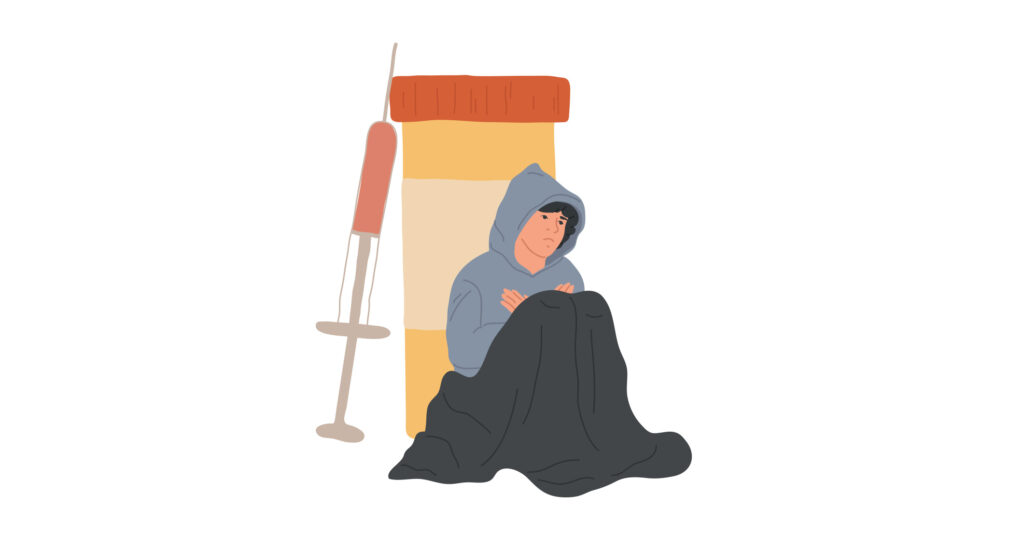Heroin is one of those drugs that seem so dangerous that it’s hard to imagine anyone you know ever developing an addiction to it. But you might be surprised by how much more common heroin abuse is than you imagine. While heroin isn’t a starter drug, it’s one that those struggling with addiction may be introduced to later on in their substance abuse journey. And you only need to try heroin a few times to get addicted. Keep reading for some heroin abuse statistics that will leave you shocked at how extensive this drug addiction is in the United States.
What Is Heroin?
Heroin is a type of opiate drug extracted from specific poppy plants. This illegal narcotic is highly addictive and dangerous, as it can lead to physical and mental health problems and overdose.
Heroin can be sniffed, smoked, snorted or injected with a needle. Because heroin is a street drug that’s made and bought illegally, most people don’t know what’s in the heroin they’re taking. The drug is typically mixed with other substances to reduce costs or create a stronger high.
Heroin Abuse Stats on Usage
- Wondering how many people use heroin? According to a 2021 National Survey on Drug and Alcohol Use, 0.4% (or about 1.1 million people) of those ages 12 or older reported using heroin in the past 12 months.
- In the same survey, approximately 1 million Americans (12 and older) reported having a heroin abuse disorder.
- Heroin is used by young teens, too. In 2022, the percentage of teenagers reporting using heroin in the past 12 months was:
- 0.3% of 8th graders
- 0.2% of 10th graders
- 0.3% of 12th graders
Heroin History and Trends
- The good news is that overdose deaths involving heroin have trended down since 2016. There were 9,173 deaths reported in 2021.
- The United States went through an opioid overdose epidemic from 1999 to 2021, during which nearly 645,000 people died from prescription or illicit opioids.
Heroin Abuse Statistics and Other Drugs
- Nearly 75% of heroin overdose deaths in 2021 involving heroin also involved synthetic opioids other than methadone (primarily fentanyl).
- Many people overdosing on heroin (and other opioids) also have other drugs in their system.
- Approximately 23% of individuals who use heroin develop opioid addiction.
- 80% of new heroin users started with prescription painkillers.
- When it comes to heroin, women tend to take it in smaller amounts and for a shorter period.
- Women are less likely than men to inject heroin. However, when they do inject it, they often cite it’s due to external factors, such as peer pressure or encouragement from their partner.
The Dangers of Heroin
Most people don’t wake up one day and think it’s a good day to try heroin. Instead, it often happens due to other substance abuse addictions. For example, someone addicted to prescription opioids might not have a source for their pills anymore and decide to try heroin. Or someone who’s been experimenting with cocaine and alcohol may be offered heroin at a party and decide to test it out.
Some people think they’re safe from developing a heroin addiction if they stick to snorting or sniffing the drug. However, this typically doesn’t last long. The body quickly becomes used to the effects of heroin and needs more for the same high. As a result, people soon find themselves injecting heroin to get a fast and intense high.
Once a heroin addiction develops, there are many potential dangers of continued use, including:
- Liver disease and kidney disease
- Infections, including pulmonary infections, heart infections, skin infections, hepatitis and HIV
- Collapsed veins
- Mental health conditions, including depression and antisocial personality disorder
- Infertility (for women) and miscarriage
- Deterioration of white matter in the brain
- The inability to keep a job, keep up with finances or stay in a relationship
- Problems with the law
- Increased risk of lung issues, including pneumonia
Recovery Is Possible
If you or someone you know is battling a heroin addiction, know that help is available. Heroin is a serious substance that can take over a person’s body and mind. Getting professional help for both withdrawal and recovery treatment ensures the highest chance of success.
The National Rehab Hotline (NRH) offers free support for anyone in need. You can call 24-7 and one of our crisis hotline specialists will walk you through your next steps and what resources are available.
Addiction is a powerful disease, but you can’t let it win. Return to your old, healthy self by taking the first step today with NRH.

